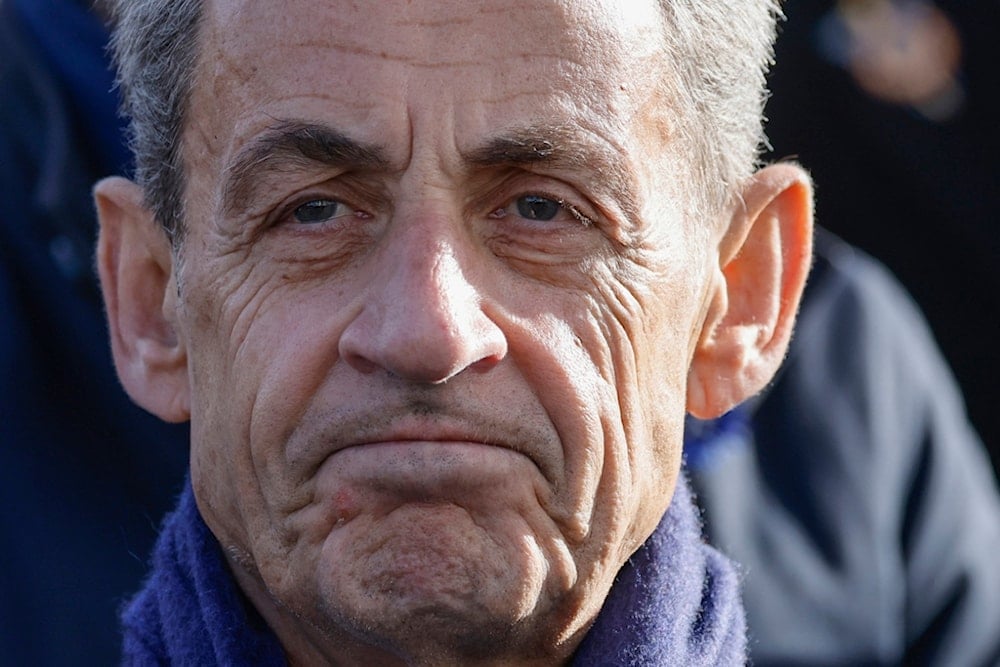Sarkozy faces trial over alleged illegal campaign funding from Gaddafi
This landmark trial will see the former French president and 12 others, including three former government ministers, accused of criminal conspiracy to accept substantial funds from a foreign regime.
-

Former French President Nicolas Sarkozy looks on as he attends a ceremony at the Arc de Triomphe, as part of the commemorations marking the 105th anniversary of the November 11, 1918 Armistice, ending World War I, on Saturday, November 11, 2023, in Paris (Ludovic Marin/Pool via AP, File)
Former French President Nicolas Sarkozy is set to face trial on Monday over allegations of receiving millions of euros in illegal campaign funding from the late Libyan dictator Muammar Gaddafi, marking one of the most significant political financing scandals in modern French history.
This landmark trial will see Sarkozy and 12 others, including three former government ministers, accused of criminal conspiracy to accept substantial funds from a foreign regime.
Following a decade-long anti-corruption investigation, the court will examine claims of a "corruption pact" between Sarkozy and Gaddafi’s regime, involving cash-filled suitcases allegedly delivered to French ministry buildings to fund Sarkozy’s successful 2007 presidential campaign.
The trial will also explore whether the Libyan regime sought diplomatic, legal, and business favors in exchange for campaign financing.
Among the requests was an alleged effort to lift France’s international arrest warrant against Gaddafi’s intelligence chief, Abdullah al-Senussi, convicted in absentia for the 1989 bombing of a UTA passenger plane that killed 170 people.
Laure Heinich, a lawyer representing families of UTA bombing victims, emphasized her clients’ shock at the possibility of "the arrest of the person who killed their family members" being bartered for money. She described the alleged pact as tainting Sarkozy’s campaign funds with the victims’ blood.
Sarkozy, who served as president from 2007 to 2012, denies all wrongdoing.
The three-month trial will delve into Sarkozy’s complex ties with Gaddafi. Despite Gaddafi’s pariah status, Sarkozy invited him for a state visit to Paris in 2007, shortly after taking office. However, by 2011, Sarkozy spearheaded NATO-led airstrikes against Gaddafi’s regime, which ultimately led to the dictator's ousting and death.
If convicted, Sarkozy could face up to 10 years in prison, along with close associates Claude Gueant and Brice Hortefeux, both of whom deny wrongdoing. Sarkozy’s former budget minister, Eric Woerth, now an MP for Emmanuel Macron’s party, is also on trial and denies involvement.
The case includes damning allegations from Gaddafi’s son, Saif al-Islam, who stated in 2011 that "Sarkozy has to give back the money he accepted from Libya to finance his electoral campaign."
"We financed his campaign and we have the proof … The first thing we’re demanding is that this clown gives back the money to the Libyan people," he told Euronews at the time.
Sarkozy already has two prior convictions. Last month, France’s highest court upheld a corruption and influence-peddling ruling against him, resulting in a one-year sentence requiring him to wear an electronic tag, a first for a former head of state. He has appealed to the European Court of Human Rights.
In another case, Sarkozy was found guilty of illegal campaign overspending in his unsuccessful 2012 reelection bid, a ruling also under appeal.
It is noteworthy that a documentary on the latest case, Personne N’y Comprend Rien (No One Understands), will debut in French cinemas on Wednesday, shedding further light on the investigation.

 3 Min Read
3 Min Read








